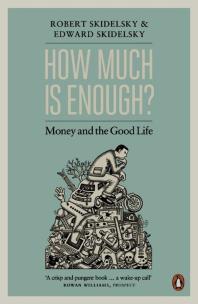- Regulamin
- Koszty dostawy
- Kontakt
- Dziś w ofercie 234 752 produkty
KSIĄŻKI
- Albumy
- Beletrystyka
- Biografie
- Dla dzieci i młodzieży
- Edukacja
- Ekonomia i biznes
- Ezoteryka
- Historia
- Informatyka
- Kalendarze
- Komiksy
- Kryminał i sensacja
- Kultura i sztuka
- Literatura faktu
- Literatura kobieca
- Literatura piękna
- Medycyna
- Nauka języków obcych
- Nauki humanistyczne
- Nauki przyrodnicze
- Nauki ścisłe
- Podręczniki
- Poradniki
- Prawo i administracja
- Przewodniki i podróże
- Psychologia
- Religia
- Sport
- Technika
- Zdrowie i uroda
ZABAWKI
- Artykuły dla niemowląt
- Bączki
- Bujaki i skoczki
- Ciągnij / pchaj
- Dla niemowlaka
- Grzechotki i gryzaki
- Karuzele i pozytywki
- Maty i centra zabaw
- Projektory i lampki
- Sortery i piramidki
- Zabawki
- Edukacyjne i kreatywne
- Figurki
- Klocki
- Lalki
- Pojazdy
- Pluszaki i maskotki
- Sport i rekreacja
- Zabawa w dom
- Zabawki drewniane
- Puzzle
- Do 200 elementów
- 201-500 elementów
- 501-1000 elementów
- Ponad 1000 elementów
- Puzzle 3D
ART. PAP
- Artykuły biurowe
- Artykuły piśmiennicze
- Bloczki i kartki samoprzylepne
- Dziurkacze
- Kalkulatory
- Nożyczki i nożyki
- Skoroszyty
- Teczki
- Wizytowniki
- Zszywacze
- Artykuły szkolne
- Akcesoria szkolne
- Modelowanie
- Notatniki i zeszyty
- Piórniki
- Plecaki i torby
- Pojemniki na śniadanie
- Pomoce naukowe
- Przybory matematyczne
- Przybory rysunkowe
- Upominki i gadżety
- Akcesoria do książek
- Artykuły balowe
- Breloki i zawieszki
- Drobiazgi, różności
- Kubki
- Oferta Świąteczna
- Papeteria, kartki i naklejki
- Skarpetki Many Mornings
- Upominki
GRY
MULTIMEDIA
- Audiobooki
- Beletrystyka
- Biografie i wspomnienia
- Dla dzieci i młodzieży
- Fantastyka
- Filozofia i religia
- Historia
- Literatura faktu i reportaż
- Poradniki
- Sensacja i kryminał
- Filmy DVD/BD
- Animowane
- Biograficzne
- Fantasy
- Horrory
- Komedie
- Romanse
- Science Fiction
- Sensacyjne / kino akcji
- Thrillery
- Muzyka CD
- Alternatywna
- Blues
- Dla dzieci
- Jazz
- Klasyczna
- Piosenka aktorska i poetycka
- Pop
- Rock
- Świąteczna i kolędy
- Akcesoria GSM
- Głośniki
- Kable i adaptery
- Klawiatury
- Myszy
- Słuchawki
PROMOCJE
ZDROWIE
LEGO

How much is enough? Money and the good life
Autor: Skidelsky Robert Skidelsky Edward
Wydawca:
Penguin Books
ISBN:
9780241953891
EAN:
9780241953891
oprawa:
Miękka
format:
12.5x19.5cm
język:
angielski
liczba stron:
245
rok wydania:
2013
(0) Sprawdź recenzje
Opis produktu
Zasady bezpieczeństwa
In 1930 the great economist Keynes predicted that, over the next century, income would rise steadily, people's basic needs would be met and no one would have to work more than fifteen hours a week. Why was he wrong?
Robert and Edward Skidelsky argue that wealth is not - or should not be - an end in itself, but a means to 'the good life'. Tracing the concept from Aristotle to the present, they show how far modern life has strayed from that ideal. They reject the idea that there is any single measure of human progress, whether GDP or 'happiness', and instead describe the seven elements which, they argue, make up the good life, and the policies that could realize them.
CENA:
40,09
zł
Cena detaliczna:
53,60 zł
25%
rabatu
Najniższa cena z ostatnich 30 dni: 40,19 zł
Produkt niedostępny
Uwaga!!!
Ten produkt jest zapowiedzią. Realizacja Twojego zamówienia ulegnie przez to wydłużeniu do czasu premiery tej pozycji. Czy chcesz dodać ten produkt do koszyka?


Wybierz wariant produktu
